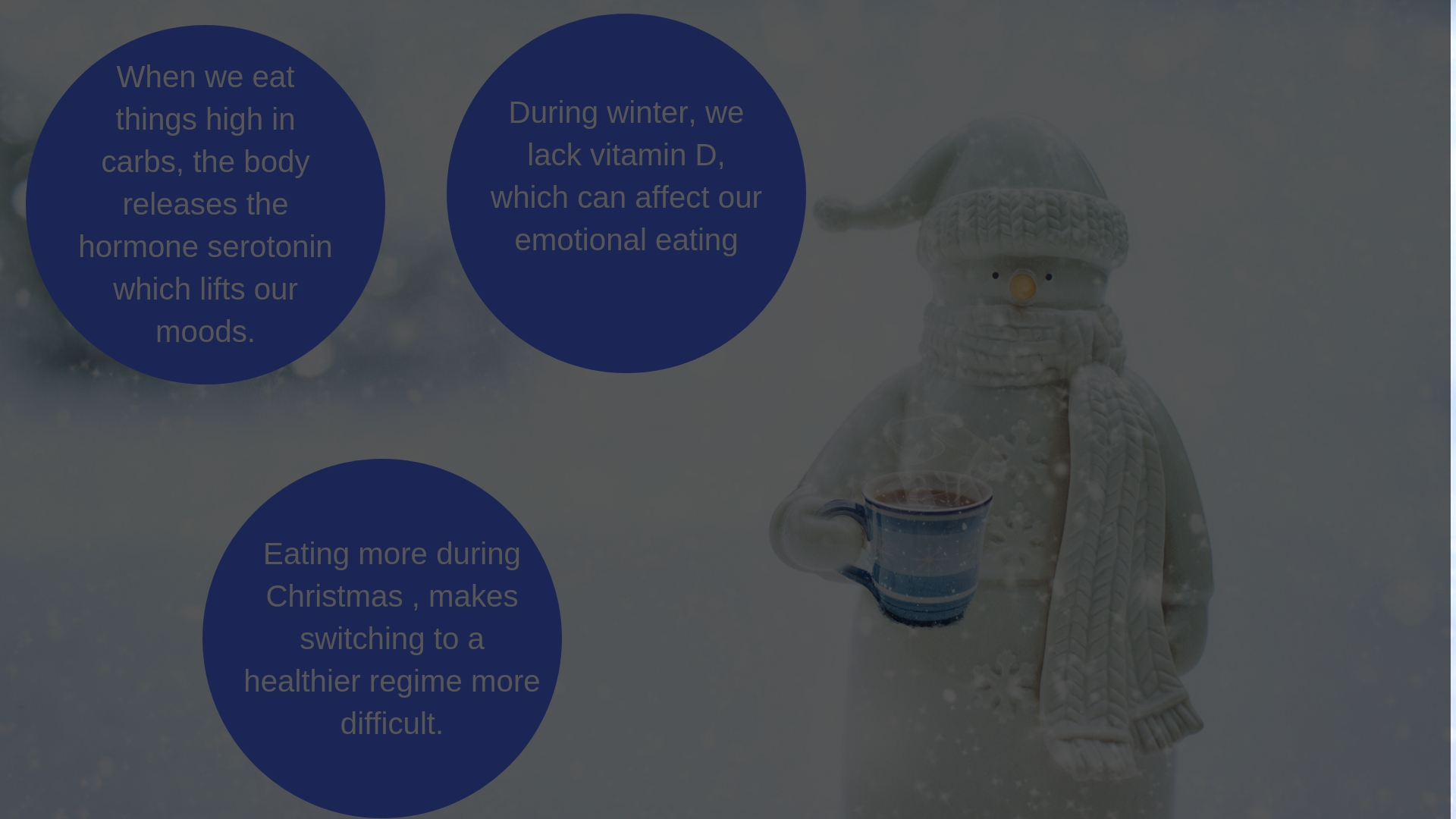Have you resolved to kick-start 2019 by losing weight and getting fitter? Dieting is high on the most people’s to-do list in January and the newspapers and magazines are full of tips for shedding those Christmas calories.
But, despite the best intentions, most diets will fall by the wayside. The problem is that January is generally cold, there are few daylight hours and eating something stodgy and filling makes you feel better – it’s not called comfort food for nothing. Let’s face it, when it’s miserable outside, curling up with a cup of hot chocolate and biscuits is more attractive than a salad.
Craving carbs
The fact is that, during the winter, we crave more starchy and sugary foods. When we eat things high in carbs, the body releases the hormone serotonin which lifts our moods.
Unfortunately, this feeling is short-lived, and this is what leads to an unhealthy cycle of wanting to eat stodgy food for that feel-good fix. Also, during winter, we lack vitamin D, which can affect our emotional eating. Vitamin D has a significant impact on the levels of calcium that the body can absorb. Calcium is an important contributor to the body’s immune system and bone health. Therefore, I recommend a Vitamin D supplement during winter (www.futurehealthmanagement.co.uk/vitamins/)
Habit is another factor in the sabotaging of the new year diet. It’s likely that you’ve been indulging more not just over the festive period but also during the run-up – all those Christmas parties etc. So, you’ve got used to eating more, which makes switching to a healthier regime more difficult.
Of course, if you’re feeling unhappy or stressed, then you are highly prone to tucking into larger proportions of the wrong things to lift your mood.
Mood food
Naturopathy has an important role to play in tackling the imbalance or craving. It’s a discipline that takes a holistic look at the whole person and gets to the root cause of why they have a low mood and coming up with a resolution, including altering their eating habits.
Here are some tips on keeping in a good mood with diet.
- Invest in a pressure cooker and make hearty stews and bone broth soups
- Spice up salads with ginger, cinnamon, pepper and cayenne pepper, which are great winter warmers
- Roasted vegetables make a delicious and hardy winter dish and can be eaten on their own or as an accompaniment to meat or fish
- Peppers or tomatoes stuffed with minced turkey, chicken or lamb are a tasty option
- Pulses and beans make healthy and filling dishes. Try a lentil or chickpea casserole and add boiled eggs, spinach, carrots and even meat.
- Avocados are full of protein and essential fats and they are very versatile. Add them to salads, sandwiches or smoothies.
Dodging the stodge
Hydrating your body by drinking plenty of water will stop the temptation of stodge in its tracks. However, you might not feel like drinking large quantities of cold water in winter.
So, to make it more palatable, I suggest having a couple of bottles of filtered water on the kitchen counter. Add something you really like, such as mint leaves, slices of orange or lemon. There are flavoured oils you could add, including peppermint and orange.
Finally, chromium, the mineral that helps regulate the body’s insulin, is very good for combating cravings for stodgy food. There is a good supplement that I usually recommend. (www.futurehealthmanagement.co.uk/minerals/)
If you’d like more information about how to improve your health and well-being, I’d be happy to schedule a 10-minute telephone call. A preventative approach will set you on the road to a healthier you. As Hippocrates said: “What remains in diseases after the crisis is apt to produce relapses.”

